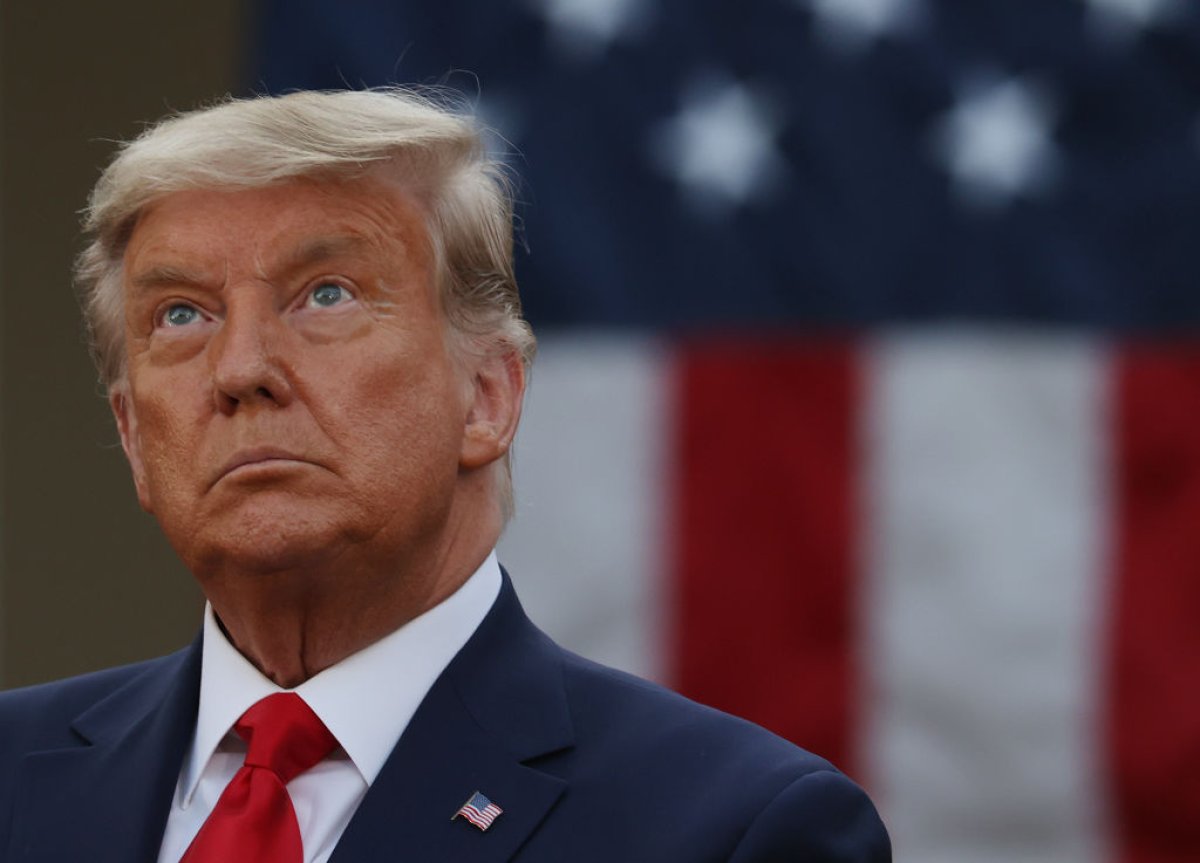President Donald Trump is expected to leave office on January 20, 2021 when former Vice President Joe Biden is sworn in as the nation's 46th commander in chief, but Trump remains in power for the next two months.
During this lame-duck session, the president may choose to issue pardons. Many of his predecessors have used their last weeks in office to grant clemency to controversial figures.
Speculation about who Trump could pardon has been swirling since the election was called for Biden. Some obvious names in the mix include former Trump campaign officials who faced convictions arising from Special Counsel Robert Mueller's investigation.
Former Trump campaign chair Paul Manafort is seen as a likely pardon recipient. He was sentenced to two separate prison terms arising from Mueller's investigation but was released under house arrest in May due to concerns about COVID-19.
Other campaign associates potentially in line for pardons include Michael Flynn and George Papadopoulos, while long-time Trump ally Roger Stone is also considered a likely beneficiary.
Flynn pled guilty to "willfully and knowingly" making false statements to the FBI in December 2017, while Papadopoulos pled guilty to lying to the FBI about the timing of meetings with alleged go-betweens for the Russian government.
Stone was sentenced to 40 months in prison on several charges, including lying to Congress and obstructing the House of Representatives' investigation into alleged links between the Trump campaign and Russia. The president later commuted his sentence, but has not pardoned him of the offenses.
Other possible pardon recipients include Charles Kushner, father of the president's son-in-law Jared Kushner, who was prosecuted by former New Jersey Governor Chris Christie for criminal tax evasion and witness tampering more than 10 years ago.
Trump's personal lawyer and former New York mayor Rudy Giuliani has been mentioned for a pardon, though he has not been charged with anything or admitted to any crime.
Jeffrey Crouch is assistant professor of American politics at American University and author of The Presidential Pardon Power. He believes Trump is within his rights to pardon convicted campaign associates.
"The president can grant executive clemency (a pardon or commutation) as soon as a federal crime is committed," Crouch told Newsweek.
"He does not need to wait until someone is charged, tried or convicted. The Supreme Court has recognized the president's flexibility in this area in Ex Parte Garland and Ex Parte Grossman."
"Neither the Constitution nor case law requires the president to spell out what specific offenses are being pardoned," he said.
"Legally speaking, Trump would be on safe ground if he pardoned Giuliani, Flynn, Manafort, Stone, and others. The president has a lot of leeway to grant clemency for federal offenses," Crouch said.
Brian C. Kalt, professor of law at Michigan State University, told Newsweek that presidents "have the broad power to pardon however they see fit."
"But there are some pardons that are less justifiable than others," Kalt said.
"Pardoning one's own cronies is never a good look. Pardoning as a lame duck, with zero political accountability, is also a bad look.
"It was problematic when George H.W. Bush pardoned the Iran-Contra defendants after he lost the election, it was problematic when Bill Clinton pardoned his brother [Roger] and Susan McDougal on his last day in office, and it would be problematic for Donald Trump to pardon his own people on his way out as well."
The Iran-Contra Affair involved the illegal sale of arms to Iran. Roger Clinton was pardoned for a drugs conviction and McDougal was convicted in relation to the Whitewater investigation.
Crouch agreed with Kalt's assessment, also highlighting controversial presidential pardons from the recent past.
"Politically, though, these decisions would be pretty clear examples of the president showing favoritism to his close allies," Crouch said.
"I have argued that the Framers intended for pardons to be used as an 'act of grace' (mercy shown to an individual), or for the public welfare, for example, the Civil War-era offers of clemency to Confederates by President Andrew Johnson.
"My view is that it would be difficult for President Trump to justify clemency for these men as consistent with either of the Framers' rationales. Instead, they would be more accurately characterized as abuses of the clemency power for the president's personal interest.
"As such, they would be more like George H.W. Bush's pardons for Iran-Contra defendants, Bill Clinton's pardons to Marc Rich and others on his last day, and George W. Bush's commutation of 'Scooter' Libby's prison sentence," Crouch said.
Rich was charged with tax fraud and fled the country while he was being prosecuted, while Libby was convicted of four charges, including perjury, relating to the leaking of the identity of CIA officer Valerie Plame Wilson in 2003.
Trump has not yet formally accepted defeat in the presidential election and no announcements have been made about pardons
Correction 11/17/20, 9:00 a.m. ET: This article was corrected to attribute quotes to Prof. Jeffrey Crouch which had mistakenly been attributed to Prof. Brian C. Kalt.

Uncommon Knowledge
Newsweek is committed to challenging conventional wisdom and finding connections in the search for common ground.
Newsweek is committed to challenging conventional wisdom and finding connections in the search for common ground.
About the writer
Darragh Roche is a U.S. News Reporter based in Limerick, Ireland. His focus is reporting on U.S. politics. He has ... Read more
To read how Newsweek uses AI as a newsroom tool, Click here.








